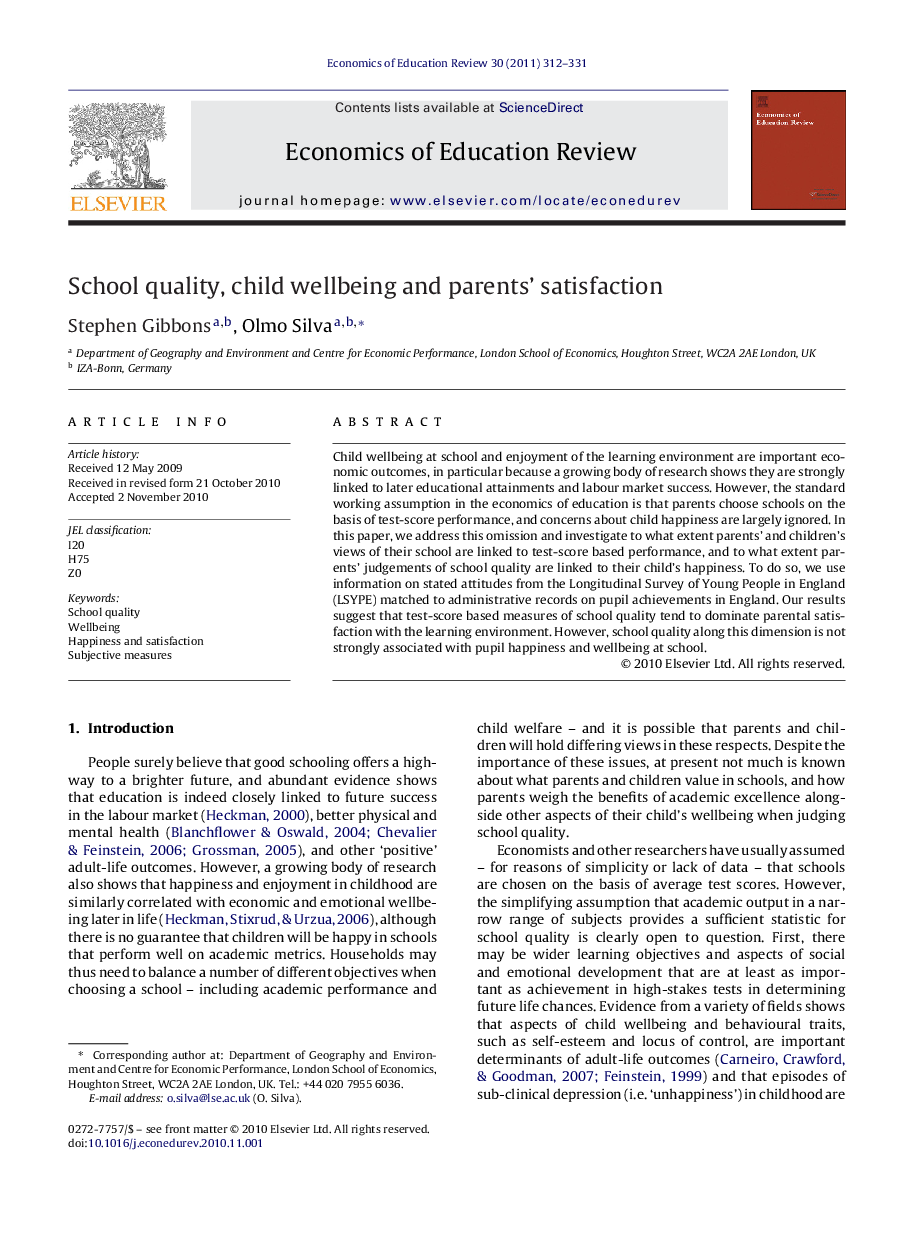| Article ID | Journal | Published Year | Pages | File Type |
|---|---|---|---|---|
| 354782 | Economics of Education Review | 2011 | 20 Pages |
Child wellbeing at school and enjoyment of the learning environment are important economic outcomes, in particular because a growing body of research shows they are strongly linked to later educational attainments and labour market success. However, the standard working assumption in the economics of education is that parents choose schools on the basis of test-score performance, and concerns about child happiness are largely ignored. In this paper, we address this omission and investigate to what extent parents’ and children's views of their school are linked to test-score based performance, and to what extent parents’ judgements of school quality are linked to their child's happiness. To do so, we use information on stated attitudes from the Longitudinal Survey of Young People in England (LSYPE) matched to administrative records on pupil achievements in England. Our results suggest that test-score based measures of school quality tend to dominate parental satisfaction with the learning environment. However, school quality along this dimension is not strongly associated with pupil happiness and wellbeing at school.
Research highlights▶ We ask whether parents’ and children's views of school quality are linked to school test scores. ▶ We ask whether child happiness and parents’ judgements of school quality are related to one another. ▶ Test-score measures of school quality dominate parental satisfaction with the school. ▶ Parents’ views about school quality depend more on test scores than on child happiness. ▶ School test-score performance is unrelated to pupil happiness and wellbeing at school.
